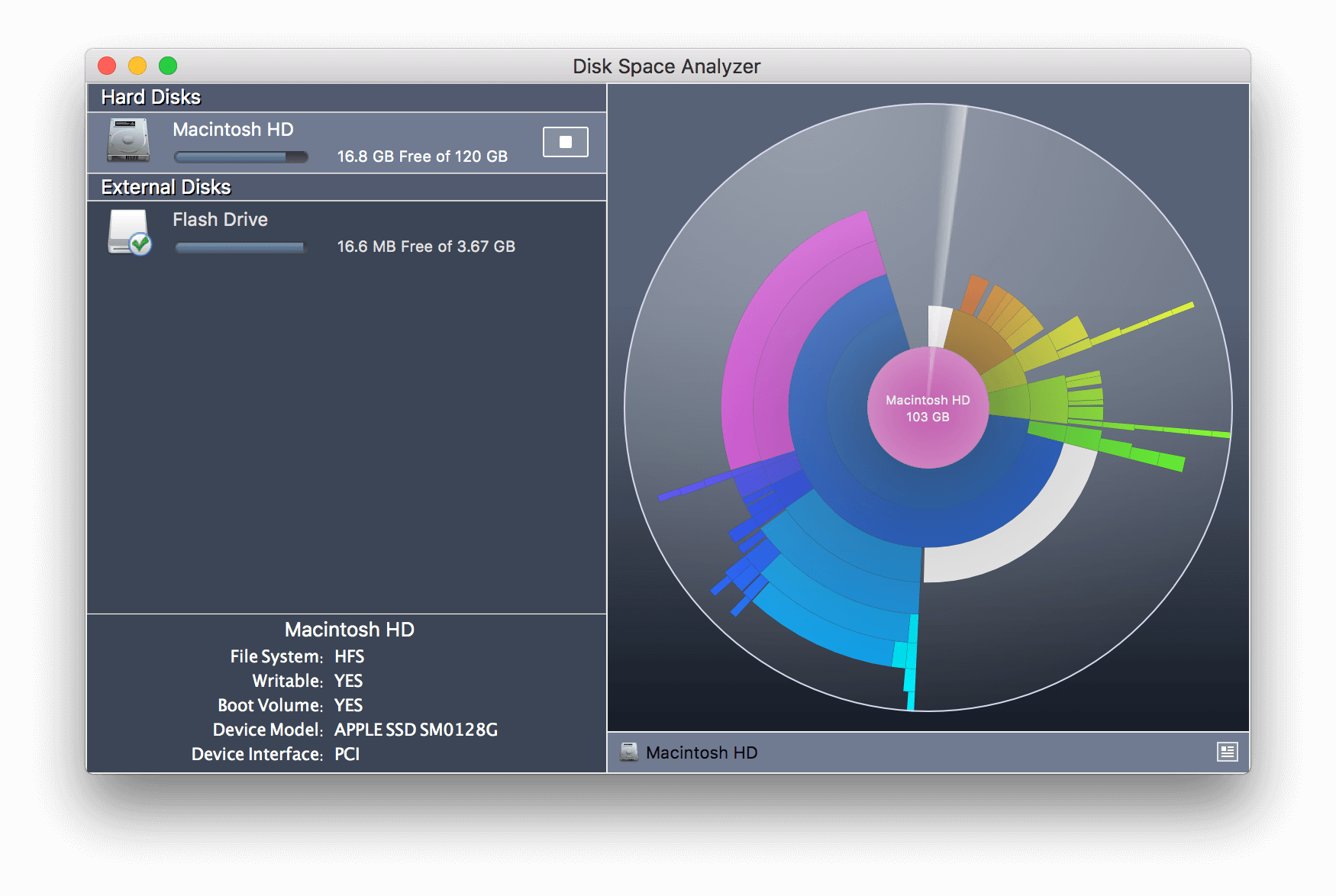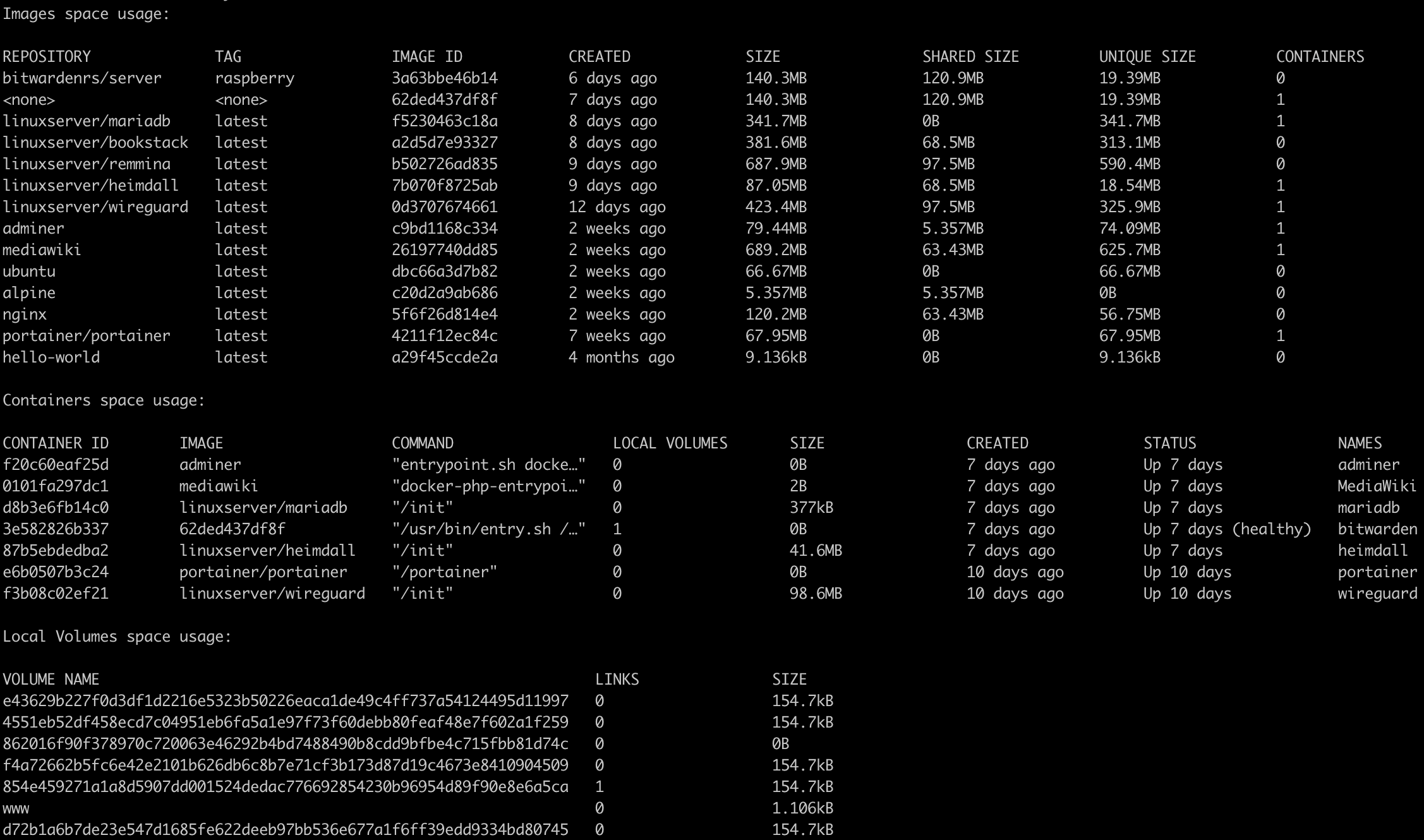

Data is only changing when I hit save, and it’s already been replicated via delegated by the time I’ve got a chance to react. I personally default to delegated, as generally our bind-mounted volumes contain source code. However, certain workloads could require increased consistency. docker pull sickcodes/docker-osx:auto boot directly into a real OS X shell with a. Searching for a solution i found the following: Docker For Mac uses a file called Docker.qcow2 that takes more and more disk space as time passes. Using the management tools i found the file Docker.qcow2 with the size of 41,5 GB. The file system delays between the host and the container aren’t perceived by humans. 40GB disk space required: 20GB original image 20GB your container. The disk space on my mac is too short since i start to use docker.

There may be delays until updates within the container appear on the host. There may be delays before writes on a host are available to the container. Every time a write happens, the data is flushed to all participants of the mount’s view. The host and container are perfectly consistent. We can allow for some slight delays, and temporary discrepancies in exchange for greatly increased performance. Docker defaults to a consistent guarantee that the host and containers file system reflect each other.įor the majority of our use cases at Engage we don’t actually need a consistent reflection - perfect consistency between container and host is often unnecessary. One of the biggest performance optimisations you can make, is altering the guarantee that file system data is perfectly replicated to the host and container. We’ve identified bind-mounts can be slow on Mac ( see above). However, unlike Docker on Linux, any file system changes need to be passed between the host and container via Docker for Mac, which can soon add a lot of additional computational overhead. HyperKit provides the kernel capabilities of Linux. This is a native MacOS application, which is bundled with an embedded hypervisor ( HyperKit). In contrast, there is a much bigger overhead on MacOS and other platforms in keeping the file system consistent - which leads to a performance degradation.ĭocker containers run on top of a Linux kernel meaning Docker on Linux can utilise the native kernel and the underlying virtual file system is shared between the host and container. On Linux, keeping a consistent guaranteed view between the host and container has very little overhead. Any writes in either the host or container are then reflected vice-versa. It gives the container a view of the host’s file system - In literal terms, pointing a particular directory in the container to a directory on your Mac. Increasing the space available to docker using docker preferences in macOS ultimately fixed the problem.In Docker, we can bind-mount a volume on the host (your mac), to a Docker container. 2:īe aware that untagged images and old containers can take up loads of space.ĭocker images (to see what the extent of the issue is), then docker rmi -f $(docker images | grep " " | awk "")Īnd similarly for containers, try something likeĭocker rm -f $(docker ps -aq) (this will remove all containers, so be careful)ĭocker system prune is also a quick method of removing old containers and untagged images. If you really can’t reclaim enough space by discarding objects, then you can always allocate more disk space. You can start reclaiming some space by doing a prune of your unused objects, a couple examples: # Prune everythingīe sure to read the Prune unused Docker objects documentation first to make sure you understand what you’ll be discarding. You can confirm that this is the issue with docker system df: docker system df 1:ĭocker objects accumulate over time, so with heavy usage you can eventually exhaust the available storage.
#DOCKER FOR MAC DISK SPACE HOW TO#
If so how can I increase the maximum container size on macOS (high sierra) (I read the default is 100GB)? How to solve this problem? Solution no. I think the error is caused by the container running out of space (I already increased the docker disk image size to 160GB using docker preferences).

I am trying to build a docker image that requires copying some large files (~75GB) and I’m getting the following error when I run the following:įailed to copy files: failed to copy directory: Error processing tar file(exit status 1): write /directory: no space left on device


 0 kommentar(er)
0 kommentar(er)
